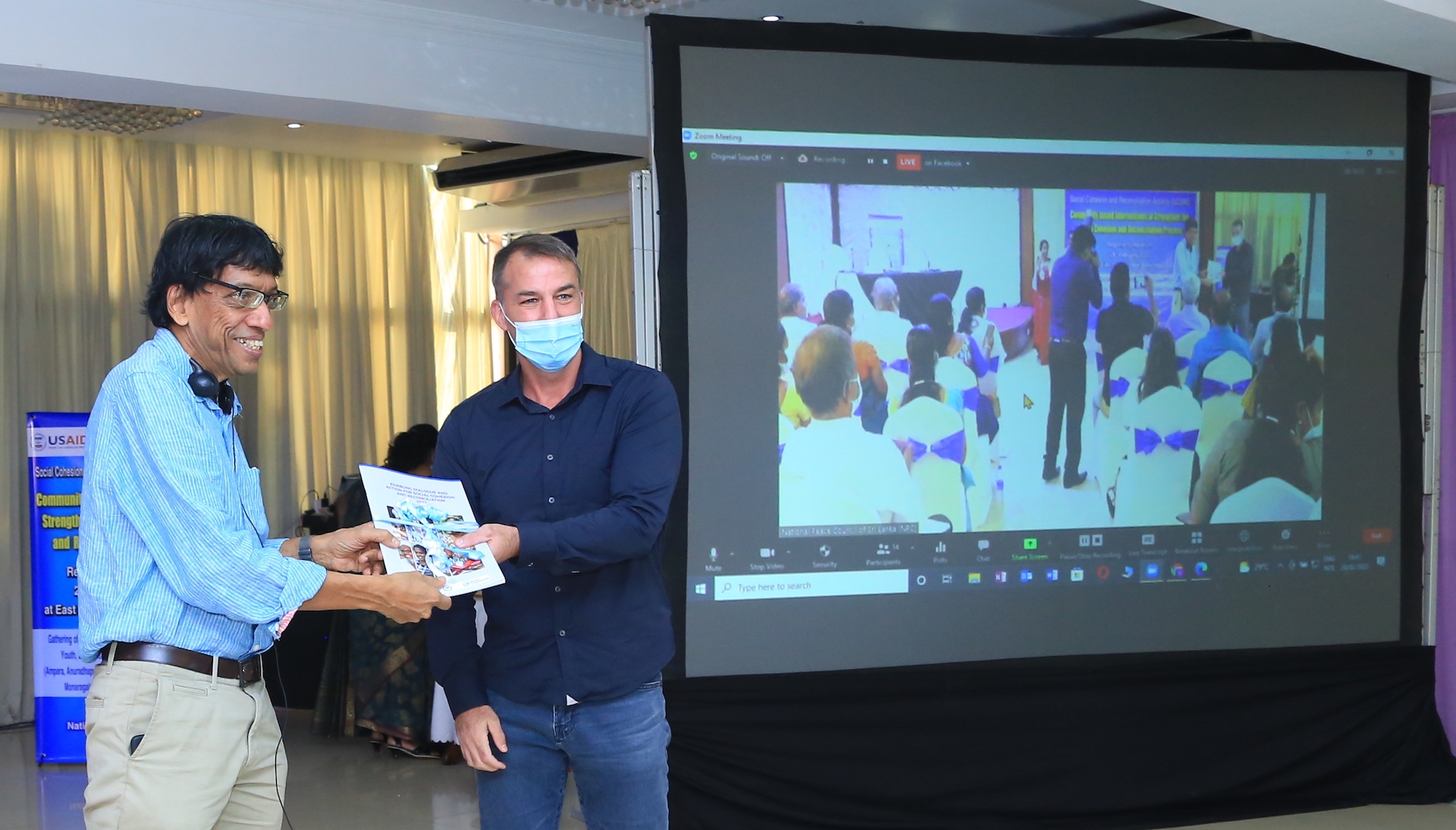NPC’s Social Cohesion and Reconciliation Activity (SCORE) conducted two symposiums at the end of its three year project.
The first symposium was on the role of the public service in local reconciliation efforts, which was conducted as a concluding session of the training programmes on non-discriminatory customer service that were carried out in 2021. Obtaining the participation over 100 government officers, local government authority representatives and community members, the programme ended in a meeting that enabled the officers to identify existing discriminatory practices in local and central government institutions while encouraging them to provide inclusive services.
In the first session, Shashik de Silva, a leading researcher of Social Scientists’ Association who developed the Non-Discriminatory Customer Service (NDCS) module, presented the findings of Everyday Peace Indicator Research (EPI) research and the NPC’s contribution to mitigating the discriminatory customer services.
While sharing NPC’s experience and findings in carrying out NDCs trainings, Mr. de Silva explained the contribution of the project to rectify discriminatory practices giving priority to the perceptions of the service recipients. In the second session participants were divided into six groups consisting of local government authority representatives, government officers and community based organization representatives. They discussed existing discrimination in the government service delivery sector and suggested possible solutions to rectify them based on their experiences.
The third session consisted of a panel discussion where participants questioned the experts including Professor T. Jayasingam former Vice-Chancellor of the Eastern University, Mr. Raliudeen Divisional Secretary in the Padaviya Divisional Secretariat and Mrs. Menaka Herath Education and Special Programme Director of Sri Lanka Human Rights Commission.
The second symposium was in Batticaloa with the participation of over 100 community members including Grama Niladaris, integration officers and district coordinators from partner organizations on the theme of community based interventions to strengthen the social cohesion and reconciliation.
SCORE beneficiaries discussed ways to improve community level interventions to sustain peace and reconciliation covering learning points, achievements, gaps and challenges. Dr. Ahilan Kadirgamar, Senior Lecturer at the University of Jaffna, spoke on the significance of community based interventions in strengthening local reconciliation initiatives and the role of community members. He pointed out the importance of empowering community members to take ownership of local reconciliation efforts.
Mr. de Silva shared findings on conducting community level interventions and challenges and gaps and highlighted the contributions needed from the community.
Community representatives spoke about their own experiences in contributing to SCORE’s initiatives including training programmes and activities carried out for women, youth, war-affected communities, school students and coexistence societies.
The final session was ended with a panel discussion where academic experts answered questions from participants. Panel members were Dr. Ahilan Kadiragamar, Mr. Ravi Muniyandy Senior Lecturer in Political Science/Sociology Department of Eastern University and Professor T. Jayasingam. A case study published by NPC covering stories in the intervention was presented to the guests.

